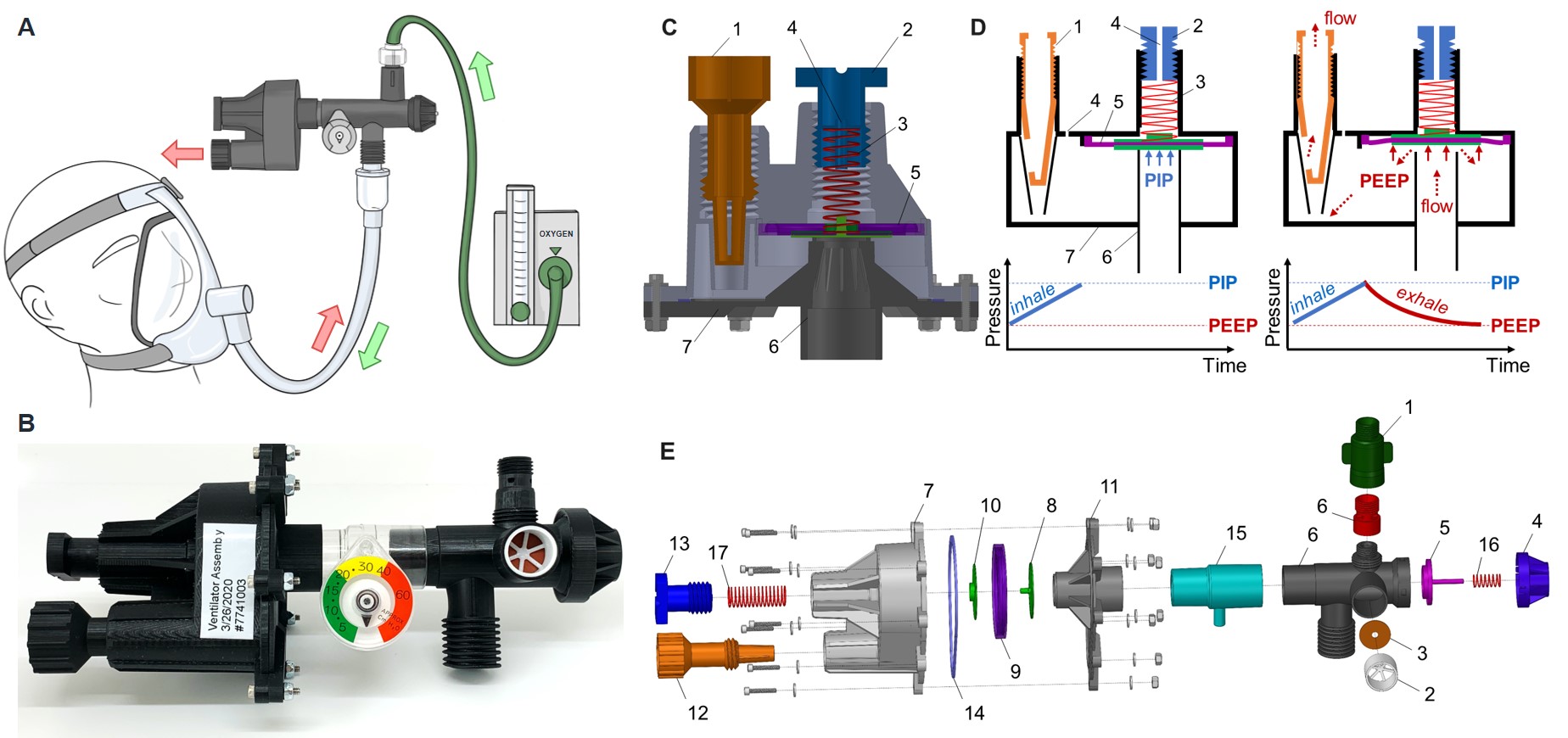Publication in PLOS ONE

 Emergency ventilator for COVID-19
has been published in PLOS ONE.
Emergency ventilator for COVID-19
has been published in PLOS ONE.
Abstract
The COVID-19 pandemic disrupted the world in 2020 by spreading at unprecedented rates and causing tens of thousands of fatalities within a few months. The number of deaths dramatically increased in regions where the number of patients in need of hospital care exceeded the availability of care. Many COVID-19 patients experience Acute Respiratory Distress Syndrome (ARDS), a condition that can be treated with mechanical ventilation. In response to the need for mechanical ventilators, designed and tested an emergency ventilator (EV) that can control a patient’s peak inspiratory pressure (PIP) and breathing rate, while keeping a positive end expiratory pressure (PEEP). This article describes the rapid design, prototyping, and testing of the EV. The development process was enabled by rapid design iterations using additive manufacturing (AM). In the initial design phase, iterations between design, AM, and testing enabled a working prototype within one week. The designs of the 16 different components of the ventilator were locked by additively manufacturing and testing a total of 283 parts having parametrically varied dimensions. In the second stage, AM was used to produce 75 functional prototypes to support engineering evaluation and animal testing. The devices were tested over more than two million cycles. We also developed an electronic monitoring system and with automatic alarm to provide for safe operation, along with training materials and user guides. The final designs are available online under a free license. The designs have been transferred to more than 70 organizations in 15 countries. This project demonstrates the potential for ultra-fast product design, engineering, and testing of medical devices needed for COVID-19 emergency response.
UIUC Press Release UIUC RapidVent




